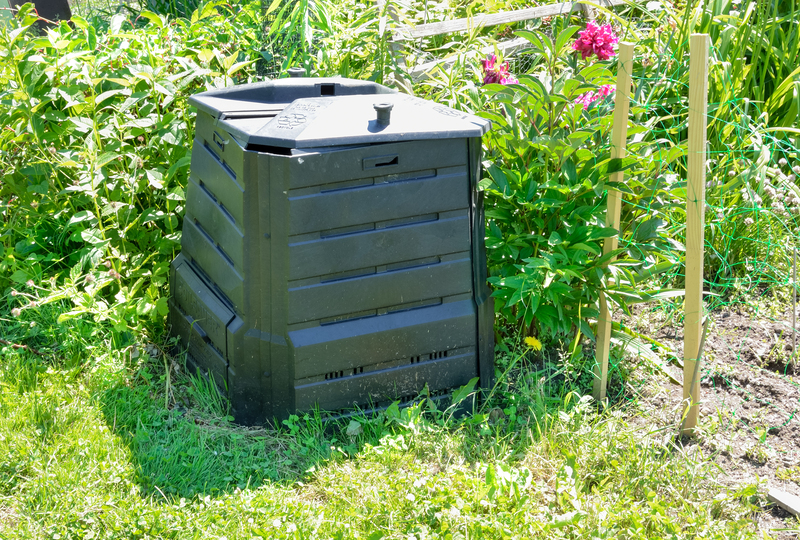In an era where environmental consciousness is paramount, the manufacturing industry is under pressure to adopt sustainable solutions for reducing waste. Lowering manufacturing waste not only helps in conserving resources but also significantly reduces the environmental footprint of production processes. This article delves into various strategies that manufacturing businesses can embrace to achieve sustainability in their operations.
Understanding Manufacturing Waste
Manufacturing waste is any material that is not transformed into a finished product. It includes everything from excess raw materials to defective products, packaging waste, and even energy waste. Waste in manufacturing is not just harmful to the environment but also incurs substantial costs, affecting a company's bottom line.

The Importance of Sustainable Manufacturing
As industries globally face the challenge of resource constraints and environmental degradation, sustainable manufacturing has become a critical focal point. Companies are now expected to not only produce high-quality products but also minimize their environmental impact. Implementing sustainable solutions in manufacturing can lead to numerous benefits, including:
- Reduction in waste disposal costs
- Lower energy and material expenses
- Improved brand image and customer trust
- Regulatory compliance and avoiding penalties
- Long-term sustainability and competitive advantage
Strategies for Reducing Manufacturing Waste
1. Conduct Waste Audits
Regular waste audits are essential to identify areas where waste occurs and determine the types and amounts of waste being generated. A thorough audit allows a manufacturer to understand the sources of waste and implement targeted solutions to reduce them.
2. Embrace Lean Manufacturing Principles
Lean manufacturing is a systematic method for waste minimization without sacrificing productivity. It involves techniques such as just-in-time production, which reduces inventory waste, and 5S methodologies that optimize workplace organization. Implementing lean principles can significantly lower operational waste and improve efficiency.
3. Invest in Advanced Technology
Advancements in technology play a crucial role in minimizing waste. Technologies such as additive manufacturing (3D printing) allow precise usage of materials, reducing waste. Similarly, smart manufacturing solutions, including IoT and AI, provide insights into processes, helping to optimize operations and reduce unnecessary waste.
4. Optimize Product Design
Product design greatly influences the amount of waste generated during manufacturing. Companies should focus on designing for sustainability, which includes using less material, opting for biodegradable or recyclable materials, and designing products that have a longer lifecycle. This not only decreases waste but also provides consumers with more sustainable products.
5. Implement a Circular Economy
The circular economy is a model that focuses on the continuous use of resources by creating a closed loop. This involves recycling, repairing, refurbishing, and reusing products and materials. By integrating circular principles into their operations, manufacturers can reduce waste and extend the lifecycle of materials.
6. Enhance Supply Chain Management
A streamlined supply chain can greatly reduce manufacturing waste. This involves working closely with suppliers to reduce packaging waste, purchasing materials that have minimal environmental impact, and ensuring efficient logistics to minimize transportation emissions.
7. Employee Training and Engagement
Employees play a crucial role in waste reduction. Providing training on sustainability practices and engaging employees through initiatives and incentives can promote a culture of environmental responsibility. When staff understand the impact of waste and feel empowered to contribute to solutions, significant reductions in waste can be achieved.

Examples of Sustainable Manufacturing Practices
Case Study: Company X's Zero Waste Initiative
Company X, a leading player in electronics manufacturing, launched a zero-waste-to-landfill program. By incorporating strict waste segregation, recycling programs, and partnership with waste-to-energy facilities, they successfully diverted over 95% of their manufacturing waste away from landfills, setting a benchmark in sustainable practices.
Case Study: Automaker Y's Waste Reduction through Technology
Automaker Y integrated AI and IoT into their manufacturing processes, enabling real-time monitoring and automation adjustments. This technological upgrade enabled them to reduce defects and material waste by 30%, while also achieving substantial energy savings.
The Future of Sustainable Manufacturing
Looking ahead, the future of sustainable manufacturing will be heavily influenced by technological innovations, evolving consumer expectations, and stricter environmental regulations. Companies that adopt sustainable manufacturing solutions will not only benefit financially but also play a critical role in protecting the planet for future generations.
As businesses continue to explore effective strategies for reducing manufacturing waste, collaboration among stakeholders, including consumers, companies, and governments, will be imperative. Together, they can drive the systemic changes needed to build a sustainable industrial future.
In conclusion, adopting sustainable solutions for lowering manufacturing waste is not just an ethical obligation but a strategic necessity. By implementing a combination of technology, sustainable practices, and thorough planning, the manufacturing industry can move towards an eco-friendly and profitable future.